Workshop on Technical Analysis
A workshop on Technical Analysis was successfully conducted on 5/10/2024, 15/11/2024, 16/11/24 and 18/11/2024 (18 hours) at DKTE’s TEI Department of Management Studies (MBA) for MBA 3rd Semester students. The session aimed to provide students with practical knowledge and skills related to market analysis, stock trends, and decision-making in the financial sector.
Workshop Objectives
Content and Activities
The workshop was divided into several interactive sessions:
Outcomes
The workshop successfully:
Feedback collected from participants indicated a high level of satisfaction and enthusiasm for similar workshops in the future.
Conclusion
The Technical Analysis workshop proved to be an enriching experience for students, equipping them with skills essential for navigating the world of finance. It was a significant step toward bridging the gap between academic learning and industry requirements.


DKTE Society’s, Textile and Engineering Institute, Ichalkaranji.
One Week Online FDP on “Research Advancement and Scholarly Excellence”
Date: 6th Oct 2023 to 13th Oct 2023
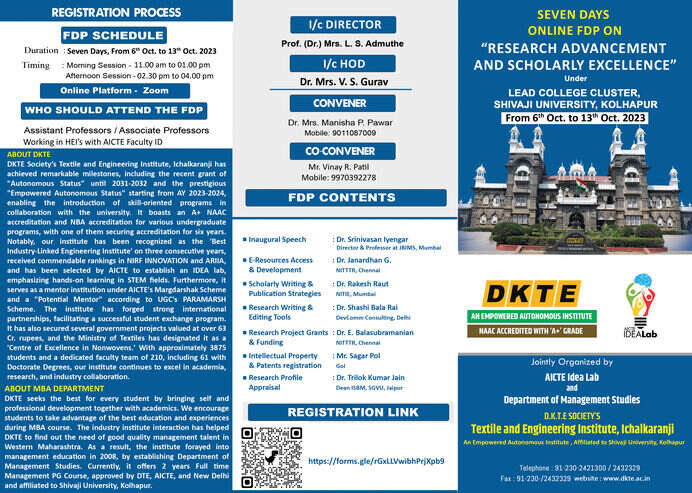
DKTES’S TEI, Ichalkaranji , Department of Management Studies
Organises Two Days Online FDP On - “RESEARCH & MOOCS DEVELOPMENT”
Date: 23rd March 2023 to 24th March 2023
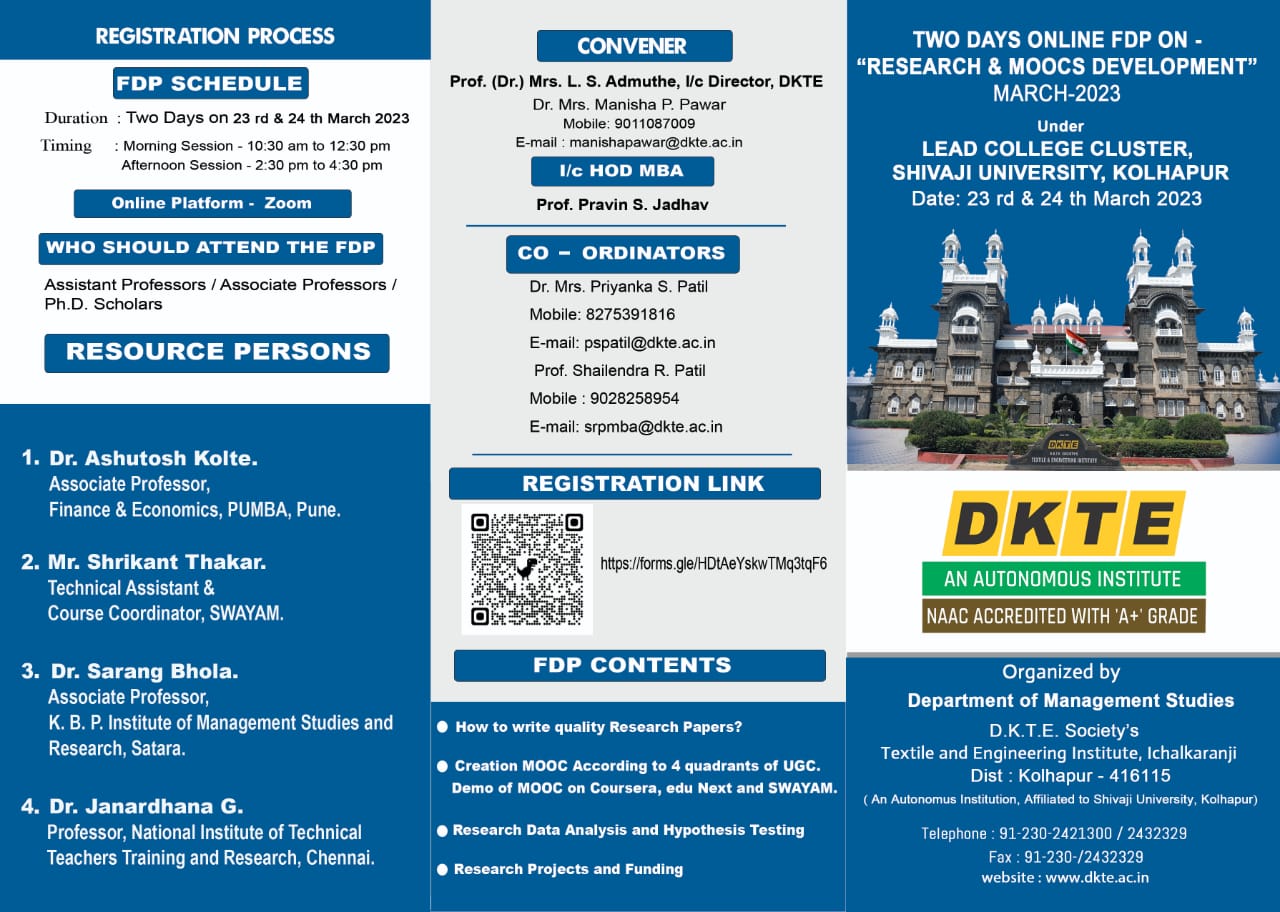
A group activity of Students.
Model of Consumer Behavior was an amazing learning experience! From analyzing how consumers allocate resources to maximize utility to understanding the impact of preferences, income, and prices on decision-making-it was a deep dive into the practical side of economics.
This activity truly highlighted how theory meets reality, offering insights into real-world consumer choices and behavior. Whether it's about balancing needs and wants or responding to market trends, these principles shape our everyday lives more than we realize.
Gives experience about more opportunities to explore and apply knowledge creatively.
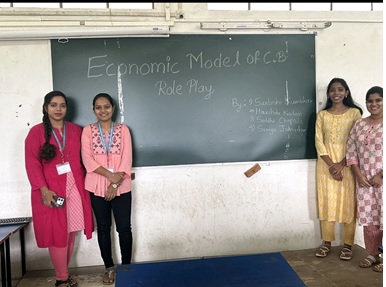
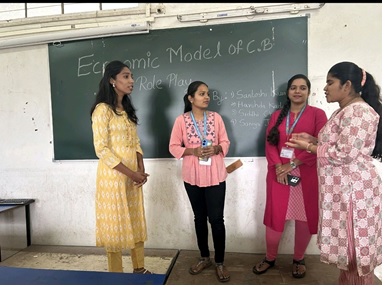
Group Presentation
Group presentation on 'Formation of a Company for Digital Marketing'!
Presentation on steps of building an online business, including strategic planning, legal compliance, resource management, and creating a strong digital presence.
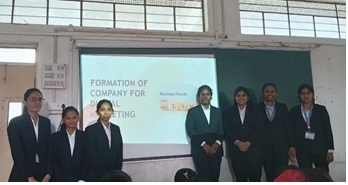
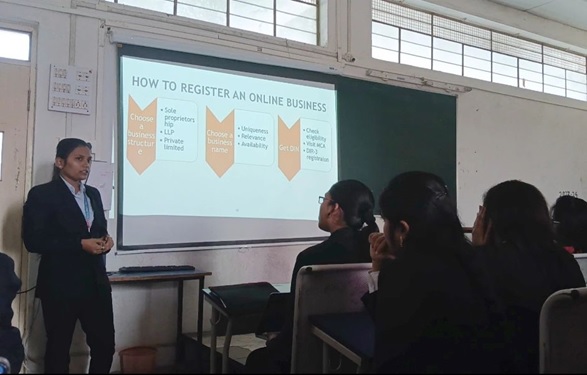
Learning through Poster Presentation
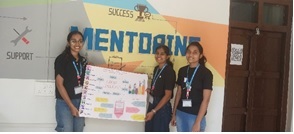
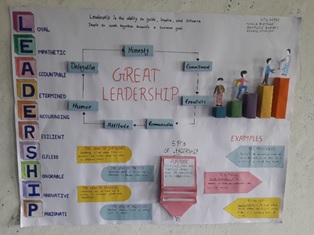
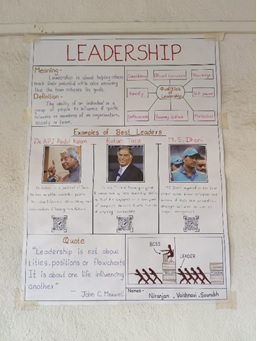
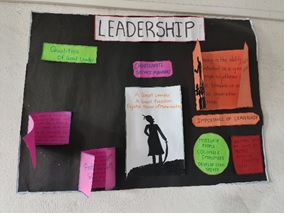
TEACHING LEARNING PROCESS
To enhance the educational experience, the DKTES MBA Department uses a variety of student-centered teaching and learning strategies. Experiential learning, participatory learning, problem-solving techniques, and other components are all part of the student-centric approach, and staff members are given all the tools they need to support students' growth. Other modern techniques include language labs, online certifications, ICT-enabled instruction, case studies, and more. Below is a summary of the institute's ongoing initiatives in the areas of participatory learning, experimental learning, and problem-solving techniques:

1) Experiential Learning:
2) Participative Learning:
To encourage students to actively participate in the learning process, the MBA department adopts Participative Learning. The Institute employs a variety of participatory learning techniques, some of which are listed below:
3. Techniques for Solving Problems:
Numerous activities are conducted to introduce students to actual business problems in order to foster the critical thinking, creativity, and problem-solving abilities needed in the corporate world. Students should be taught to recognize issues and apply creative problem-solving techniques to address issues that business organizations encounter. Research projects, case analyses, and discussions are a few examples of such activities.
4. ICT-Enabled Teaching and Learning:
The MBA program uses a variety of ICT tools to generate, share, distribute, store, and handle information. In certain situations, ICT has also become a crucial part of the teaching-learning process. Examples include the use of interactive digital whiteboards in place of chalkboards and the use of teachers' personal laptops, smartphones, and other devices for learning during class. These methods can help students develop progressive thinking abilities, give them unique and imaginative ways to communicate what they comprehend, and make them more equipped to handle the constant technological change in the industry and society.
Teachers and students can also take advantage of online courses and software such as SWAYAM/NPTEL. JGATE, DELNET, and NDL are among the e-resources available at the institute's digital library.

STUDY MATERIAL:
Study material like lecture notes, power point presentations, case studies developed by faculty etc can be accessed by students through following Moodle link
http://210.212.172.219/login/index.php
MBA Finance Lab (Industry Sponsored Lab)
Empowering Financial Excellence
The MBA Finance Lab is a state-of-the-art facility designed to enhance financial learning and practical application. Equipped with Tally, an interactive panel, and open-source platforms like TradingView and ChartInk, the lab provides hands-on experience in financial analysis, accounting, and investment strategies.
Key highlights of the lab:
The MBA Finance Lab bridges the gap between theory and real-world financial decision-making, fostering industry-ready professionals.
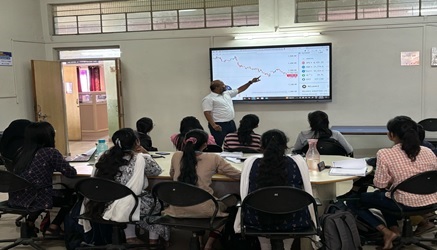
|
News Letter |
Download |
| e-Bulletin Jun_Dec_2024 | Click Here |
| e-Bulletin Jan_May_2024 | Click Here |
| e-Bulletin Jun_Dec_2023 | Click Here |
| e-Bulletin Jan_May_2023 | Click Here |
| e-Bulletin Jun_Dec_2022 | Click Here |
| e-Bulletin Jan_May_2022 | Click Here |
| e-Bulletin Jun_Dec_2021 | Click Here |
Page 1 of 4